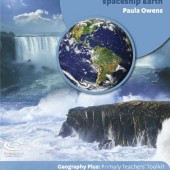
Universally, trees have been an important part of urban landscapes for millennia since they offer adequate benefits to humanity. Studies highlighted the positive impacts of biodiversity conservation in the students’ academic performance but there is still lack of literature pertaining to its role on the promotion of environmental education in the Philippines. On this note, this study aimed to analyze the Filipino senior high school students’ perceptions and experiences on participating in a tree planting activity, identify the implications of tree planting activity in studying Earth and Life Sciences, and explore the perceived constraints and opportunities. The study design is descriptive-qualitative in nature. Based on the qualitative data analysis, five themes have emerged such as: (1) simple yet beneficial; (2) opportunities and constraints; (3) practical application of learning; (4) environmental awareness promotion; and (5) mitigating environmental degradation. In conclusion, tree planting activity as a part of the field study program in schools is one of the most effective ways to combat and slow down the effect of global warming while promoting the students’ academic interests. This study also highlighted the positive impact of tree planting by improving the Filipino students’ perceptions of life, community, and environment which is the goal of 21st century education. Lastly, the study recommends the development of extension programs to school communities in the Philippines and worldwide that will arouse the interests and participations of the students to tree planting activity, gardening and ecological tours by partnering with relevant organizations and agencies.
Continue Reading
In this succinct and informative review, Shelby Gull Laird provides a good overview and solid recommendation for the comprehensive package of sustainability education K-12 curricular materials about geography—from a local to a global level—available from the UK Geography Association.
Continue Reading